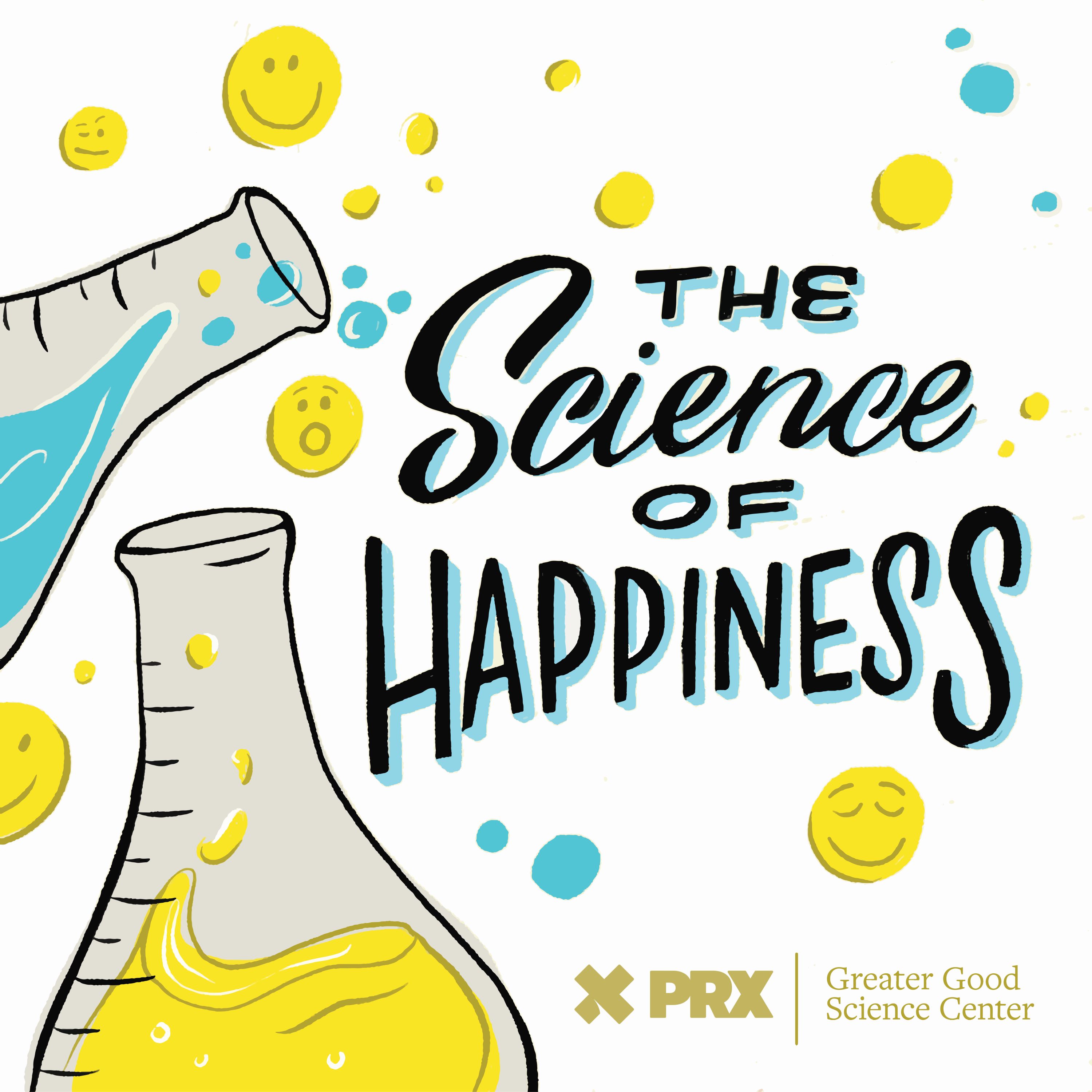

The Science of Happiness
PRX and Greater Good Science Center
Learn research-tested strategies for a happier, more meaningful life, drawing on the science of compassion, gratitude, mindfulness, and awe. Hosted by award-winning psychologist Dacher Keltner. Co-produced by PRX and UC Berkeley's Greater Good Science Center. Follow us on Instagram @HappinessPod.
Episodes
Mentioned books

9 snips
Apr 11, 2024 • 16min
How To Make Work More Satisfying
Former professor and poet Susan Glass shares her journey of prioritizing meaning and enjoyment in retirement. She explores Job Crafting to align tasks with strengths and passions. Researcher Maria Tims discusses how Job Crafting boosts well-being and team productivity

Apr 4, 2024 • 7min
Happiness Break: A Meditation To Move Through Anger, With Eve Ekman
Expert Eve Ekman discusses techniques for managing anger and frustration through mindful practices. She guides listeners through exercises to observe bodily sensations, cultivate acceptance, and promote a compassionate approach towards difficult emotions. This podcast offers valuable insights on processing anger in a healthy way and finding calm amidst challenging emotions.

Mar 28, 2024 • 17min
How To Talk To People You Disagree With
Democratic Oklahoma State Senator Jo Anna Dossett shares tips on productive conversations with political adversaries, emphasizing active listening and self-compassion. Political science professor Lilliana Mason discusses connecting emotionally for fruitful discussions over just facts. Learn about bridging divides and navigating political discourse.

Mar 21, 2024 • 5min
Happiness Break: Tap into the Joy that Surrounds You, With Anushka Fernandopulle
Explore the practice of finding joy in others' happiness for increased compassion and life satisfaction. Guided meditation by a Buddhist teacher encourages connecting with others' joy and extending well wishes.

Mar 14, 2024 • 17min
Who’s Always There for You?
The podcast discusses the power of feeling supported by loved ones, with guest José Valladares sharing his experience. They explore the impact of support on relationships, personal empowerment, and gratitude. Psychologist Angela Rowe highlights how being supported can enhance trust and confidence. The episode includes a practice to acknowledge and appreciate one's own support system.

Mar 7, 2024 • 9min
Happiness Break: Where Did You Come From? Guided Writing With Lyla June
Indigenous artist Lyla June leads a guided writing exercise about personal journeys. Autobiographical writing improves relationships and life satisfaction. Reflect on past experiences and future goals through writing. Embrace challenges and successes in a reflective exercise.

Feb 29, 2024 • 19min
Why Grownups Should Be Playful Too
Discover how playfulness can enhance relationships, reduce stress, and boost work performance. Follow Patricia's journey to infuse more fun into her life, and learn from psychologist René about the benefits of incorporating play into our daily routines.

Feb 22, 2024 • 7min
Happiness Break: A Meditation on Playfulness, With Dacher Keltner
Explore the power of playfulness in managing emotions, conflict, and boosting creativity. Reflect on childhood and recent playful memories to uplift spirits. Discover the importance of integrating more play into your routine for enhanced well-being.

Feb 15, 2024 • 16min
Encore: How to Feel Less Pressed for Time
A chef shares his experience of dedicating time to his family, realizing he has the power to prioritize special moments. They discuss the importance of being fully present and shutting out distractions for meaningful connections. The impact of helping others on our perception of time is explored through an experiment.

Feb 8, 2024 • 9min
Happiness Break: Wrap Yourself in Kindness, With Jack Kornfield
Meditation teacher Jack Kornfield shares how treating ourselves with kindness and gratitude can improve motivation and decrease self-criticism. He leads a practice of turning inward, enveloping ourselves in kindness and gratitude towards our body, heart, and mind. The guided meditation encourages finding peace and gratitude within, bringing loving awareness to the body, mind, and consciousness.


